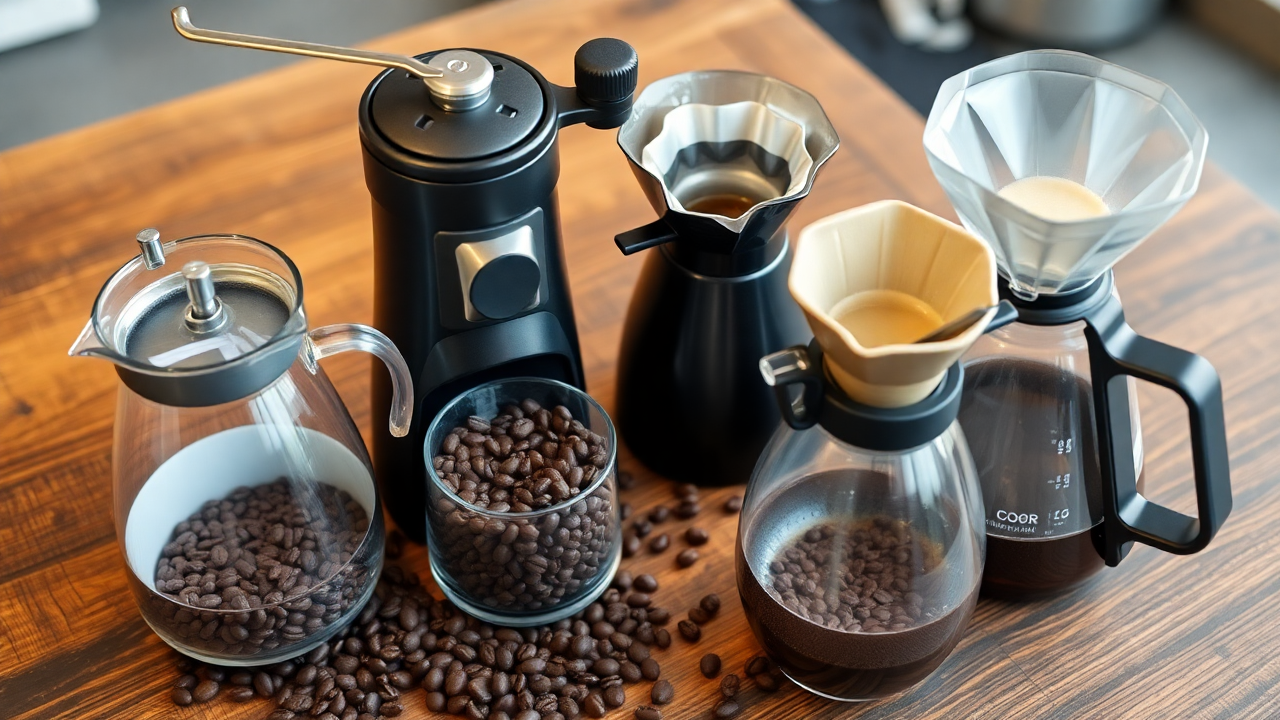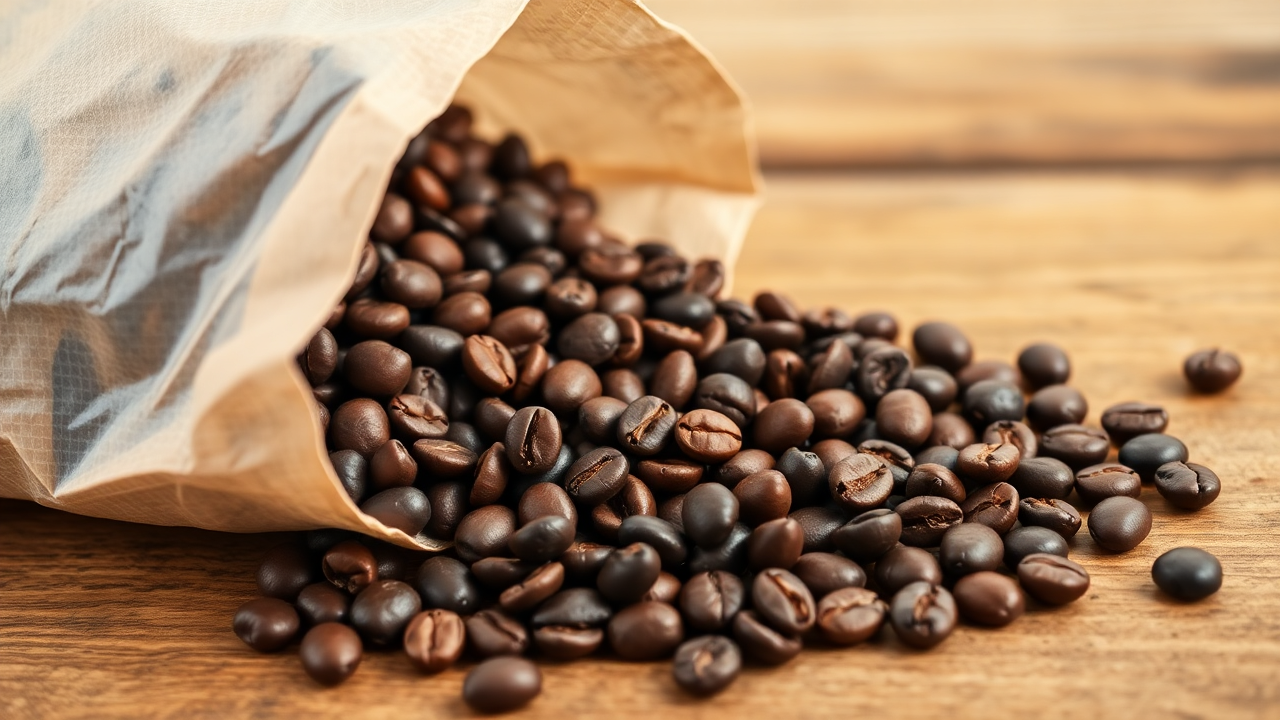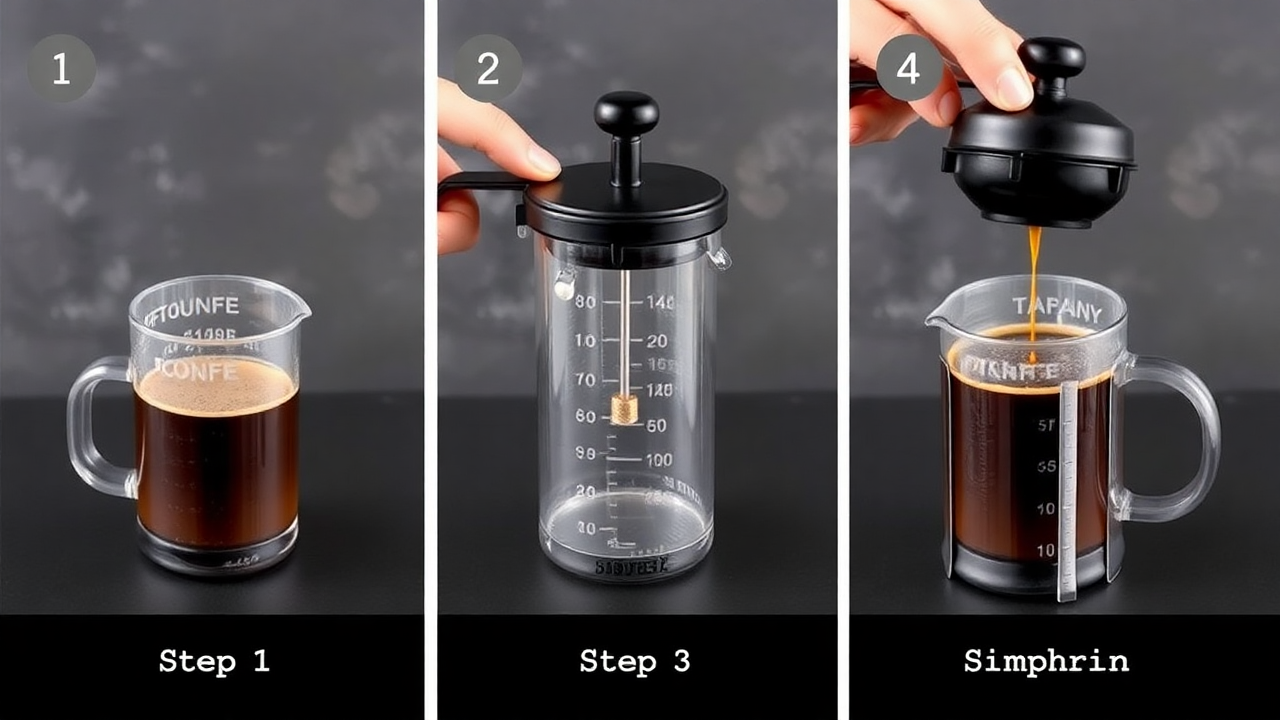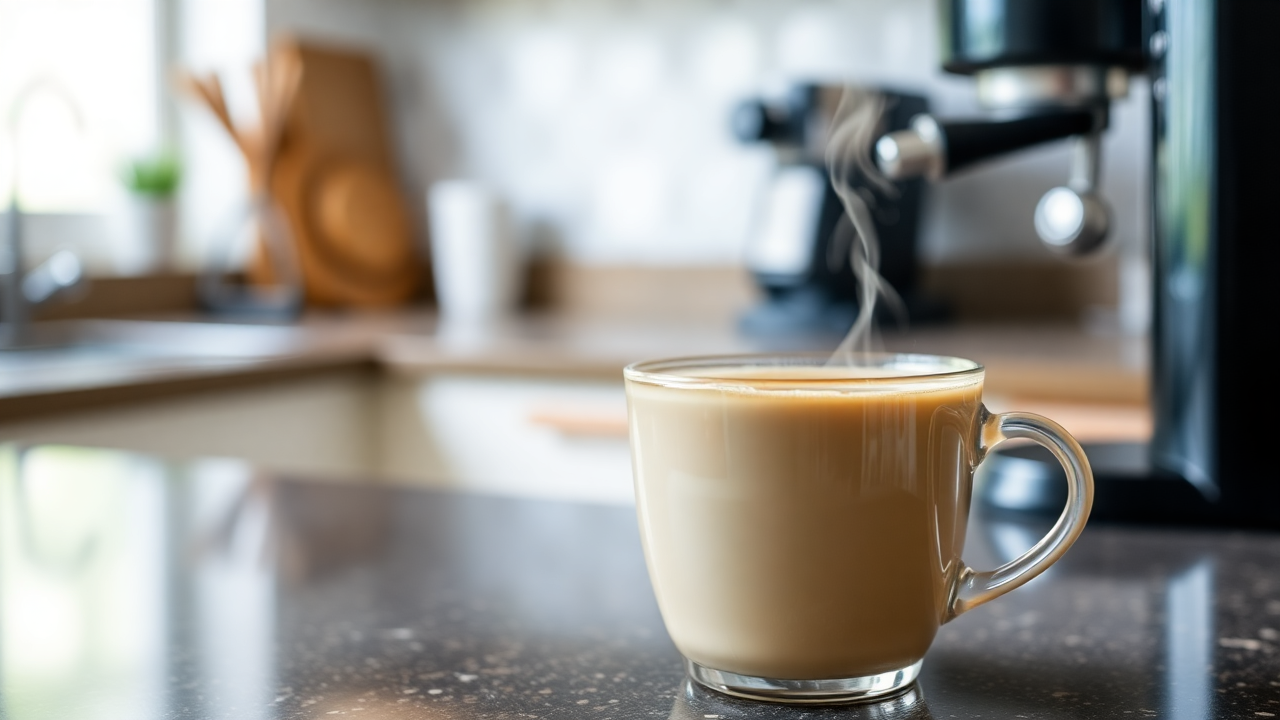![]() How to Brew Whole Bean Coffee Like a Pro (Even at Home!)
How to Brew Whole Bean Coffee Like a Pro (Even at Home!)

Brewing whole bean coffee at home can feel like an art form. It’s not just about making coffee—it’s about crafting a perfect cup that awakens your senses and transforms your mornings. Whether you're a coffee enthusiast or just someone looking to upgrade your daily brew, this guide will teach you everything you need to know about brewing whole bean coffee like a pro. From selecting the right beans to perfecting your grind and mastering your brewing technique, this article will walk you through every step.
Why Whole Bean Coffee is the Key to a Better Brew
Whole bean coffee is the foundation of a truly exceptional cup of coffee. But why is it so superior to pre-ground coffee? Let’s dive into the details.
What Makes Whole Bean Coffee Different?
When you brew coffee from whole beans, you’re ensuring maximum freshness. Pre-ground coffee loses its aroma and flavor much faster because it has more surface area exposed to air. Whole beans, on the other hand, lock in all those precious oils and flavors until you grind them.
Additionally, whole bean coffee allows you to control the grind size, which is a critical factor in determining the taste of your coffee. Whether you prefer the boldness of a French press or the precision of a pour-over, whole beans give you the flexibility to tailor your brew to your liking.

Benefits of Brewing Whole Bean Coffee
Here are some reasons why whole bean coffee is worth the effort:
- Enhanced Flavor: Freshly ground coffee has a richer and more vibrant taste.
- Customizable Grind Size: You can adjust the grind size to suit your brewing method.
- Better Quality: Whole beans are often sourced from higher-quality batches compared to pre-ground coffee.
- Longer Shelf Life: Whole beans stay fresh longer when stored properly.
By choosing whole bean coffee, you’re investing in a better coffee experience—one that’s fresher, more flavorful, and entirely customizable.
Choose one of our whole grains and have a great experience:
[ Specialty Coffee - Blackberry Microlot 88 points]
[ Specialty Coffee - Cherry Blossom Microlot 87 points]
[ Specialty Coffee - Lemon Sweetness Microlot 86 points]
[Specialty Coffee - Uruçu Microlot 87 points]
Step 1: Choosing the Right Coffee Beans
How to Pick the Perfect Beans for Your Brew
The journey to brewing like a pro begins with selecting the right beans. Not all coffee beans are created equal, so it’s essential to know what to look for.
- Origin Matters: Coffee beans from different regions have unique flavor profiles. For example:
- African beans (like Ethiopian or Kenyan) often have fruity and floral notes.
- South American beans (like Colombian or Brazilian) are typically nutty and chocolatey.
- Asian beans (like Sumatran) are known for their earthy and bold flavors.
- Roast Level: The roast level also plays a significant role in the taste of your coffee:
- Light Roast: Bright and acidic, with fruity flavors.
- Medium Roast: Balanced, with a mix of acidity and sweetness.
- Dark Roast: Bold, rich, and smoky.
- Freshness is Key: Always check the roast date on the packaging. Coffee is at its best within 2-4 weeks of roasting. Avoid beans that don’t list a roast date—they’re likely not fresh.
Pro Tip for Buying Coffee Beans
To ensure the best quality, buy your beans from a local roaster or a reputable brand. Look for beans that are labeled as “single origin” for a more distinct flavor profile or “blends” for a balanced taste.
Step 2: Essential Equipment for Brewing Whole Bean Coffee
What You Need to Brew Like a Pro
Brewing whole bean coffee doesn’t require a ton of fancy equipment, but having the right tools makes all the difference. Here’s what you’ll need:
- Burr Grinder: A burr grinder ensures a consistent grind size, which is crucial for even extraction. Blade grinders, on the other hand, produce uneven grinds that can lead to over- or under-extracted coffee.
- Digital Scale: Precision matters when it comes to coffee-to-water ratios. A digital scale helps you measure your ingredients accurately.
- Brewing Device: Choose a brewing method that suits your taste and lifestyle. Popular options include:
- French press
- Pour-over (Chemex, Hario V60)
- AeroPress
- Espresso machine
- Kettle: A gooseneck kettle is ideal for pour-over methods, as it allows for precise pouring.
- Filtered Water: Water quality has a huge impact on the taste of your coffee. Always use filtered water to avoid unwanted flavors.
Why Invest in Quality Equipment?
While it may be tempting to cut corners, investing in high-quality equipment pays off in the long run. Better tools lead to better coffee, and they’ll last you for years
Step 3: Mastering the Grind Size
How Grind Size Impacts Your Coffee
The grind size is one of the most critical factors in brewing coffee. It determines how quickly water extracts flavor from the coffee grounds. A grind that’s too fine can result in over-extraction (bitter coffee), while a grind that’s too coarse can lead to under-extraction (weak coffee).

Here’s a quick guide to grind sizes for different brewing methods:
- Coarse Grind: Best for French press and cold brew.
- Medium Grind: Ideal for drip coffee makers and pour-over.
- Fine Grind: Perfect for espresso and AeroPress.
Pro Tip for Grinding Coffee
Grind your beans just before brewing to ensure maximum freshness. Coffee begins to lose its flavor within minutes of being ground, so avoid pre-grinding your beans.
Step 4: Perfecting the Coffee-to-Water Ratio
The Golden Ratio for Brewing Coffee
The standard coffee-to-water ratio is 1:16, meaning 1 gram of coffee for every 16 grams of water. For a single cup (about 240ml), you’ll need roughly 15 grams of coffee.
Adjusting the Ratio to Your Taste
Everyone’s taste preferences are different, so don’t be afraid to experiment. If you prefer a stronger cup, use a 1:15 ratio. For a lighter brew, try a 1:17 ratio. The key is to find the balance that works for you.
Step 5: Choosing the Right Brewing Method
Popular Brewing Methods for Whole Bean Coffee
There are many ways to brew whole bean coffee, each with its unique characteristics. Here are some of the most popular methods:
French Press
- Grind your beans to a coarse consistency.
- Add coffee to the French press (1 gram of coffee per 15-16 grams of water).
- Pour hot water over the coffee and let it steep for 4 minutes.
- Press the plunger down slowly and enjoy your brew.

Pour-Over
- Use a medium grind size.
- Place a filter in your pour-over device and rinse it with hot water.
- Add coffee grounds and pour hot water in a circular motion.
- Allow the coffee to drip through the filter.
Step 6: Tips for Brewing the Perfect Cup
How to Enhance Your Brewing Process
- Use filtered water to avoid unwanted flavors.
- Preheat your brewing equipment to maintain a consistent temperature.
- Experiment with brewing times to find the perfect balance of flavor.

Step 7: Experiment and Refine
Brewing whole bean coffee is as much an art as it is a science. Don’t be afraid to experiment with different beans, grind sizes, and brewing methods to discover what you enjoy most. Keep notes on your process to replicate your favorite brews.
Summary Table: Brewing Whole Bean Coffee Steps
|
Step |
Summary |
|
Choose Beans |
Select fresh, high-quality beans based on origin and roast level. |
|
Get Equipment |
Use a burr grinder, scale, and brewing device for precision. |
|
Master Grind Size |
Adjust grind size for your brewing method (coarse, medium, or fine). |
|
Measure Ingredients |
Follow a coffee-to-water ratio of 1:16 for balanced flavor. |
|
Choose Method |
Select a method like French press, pour-over, or AeroPress. |
|
Brew and Enjoy |
Follow each method’s instructions for a perfect cup every time. |
Enjoy the Perfect Cup
Brewing whole bean coffee at home doesn’t have to be intimidating. With the right beans, equipment, and techniques, you can create a delicious, café-quality cup of coffee that’s tailored to your taste.
Whether you’re a coffee connoisseur or a casual drinker, taking the time to brew whole bean coffee is a rewarding experience that elevates your daily coffee ritual. So grab your favorite beans, fire up your grinder, and start brewing like a pro—right in your own kitchen!
